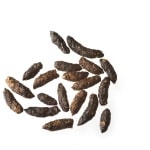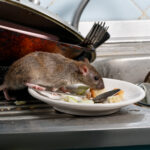How Can We Help?
How big are rat droppings?
Rat droppings are typically about 1/2 to 3/4 inches in length and are usually black or dark brown in colour. Their shape is cylindrical with blunt ends, resembling a large grain of rice. The size and shape can help distinguish rat  droppings from those of other pests, such as mice, whose droppings are smaller, about 1/4 inch in length, and have pointed ends. The appearance of rat droppings can also indicate the species; for instance, Norway rat droppings are larger and more capsule-shaped compared to the roof rat's smaller, spindle-shaped droppings. Fresh droppings are moist and dark, while older droppings become grey and crumbly over time. Finding rat droppings is a clear sign of an infestation, and they are often found in spaces where rats are active, such as near food sources, nesting sites, or along their runways. Proper identification and prompt removal are crucial in addressing a rat problem, as their droppings can pose serious health risks.
droppings from those of other pests, such as mice, whose droppings are smaller, about 1/4 inch in length, and have pointed ends. The appearance of rat droppings can also indicate the species; for instance, Norway rat droppings are larger and more capsule-shaped compared to the roof rat's smaller, spindle-shaped droppings. Fresh droppings are moist and dark, while older droppings become grey and crumbly over time. Finding rat droppings is a clear sign of an infestation, and they are often found in spaces where rats are active, such as near food sources, nesting sites, or along their runways. Proper identification and prompt removal are crucial in addressing a rat problem, as their droppings can pose serious health risks.
Are rat droppings harmful?
Yes, rat droppings are harmful and pose significant health risks to humans. Rat droppings can carry a variety of pathogens and diseases that can be transmitted through direct contact or inhalation of dust contaminated with dried faeces. One of the most serious diseases associated with rat droppings is hantavirus, which can cause severe respiratory issues and even be fatal. Leptospirosis is another concern, often transmitted through contact with contaminated water or food, leading to symptoms ranging from mild flu-like signs to severe liver and kidney
